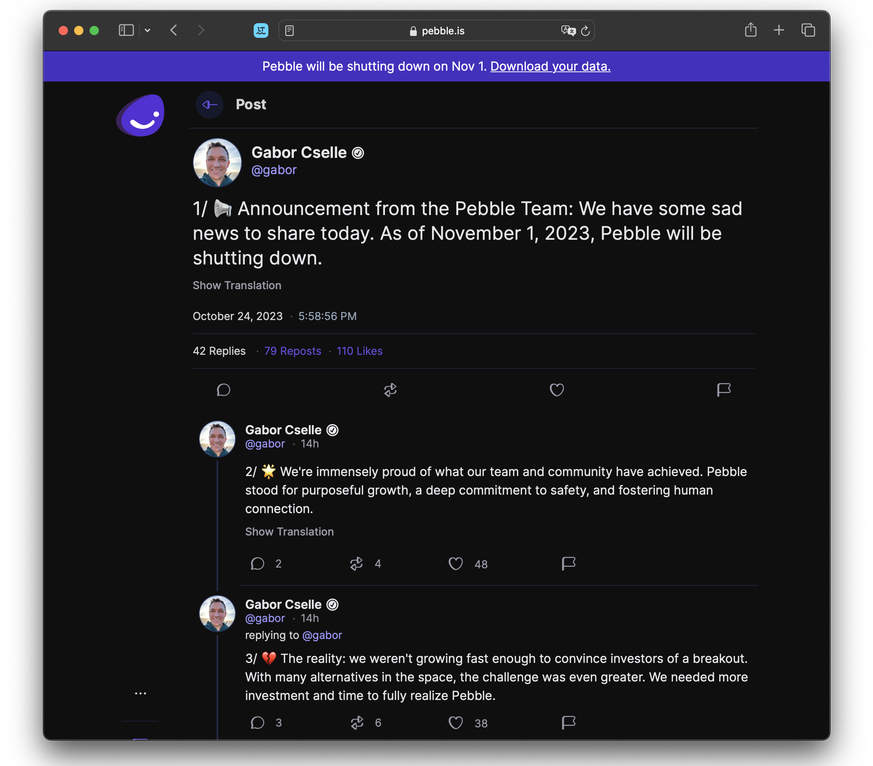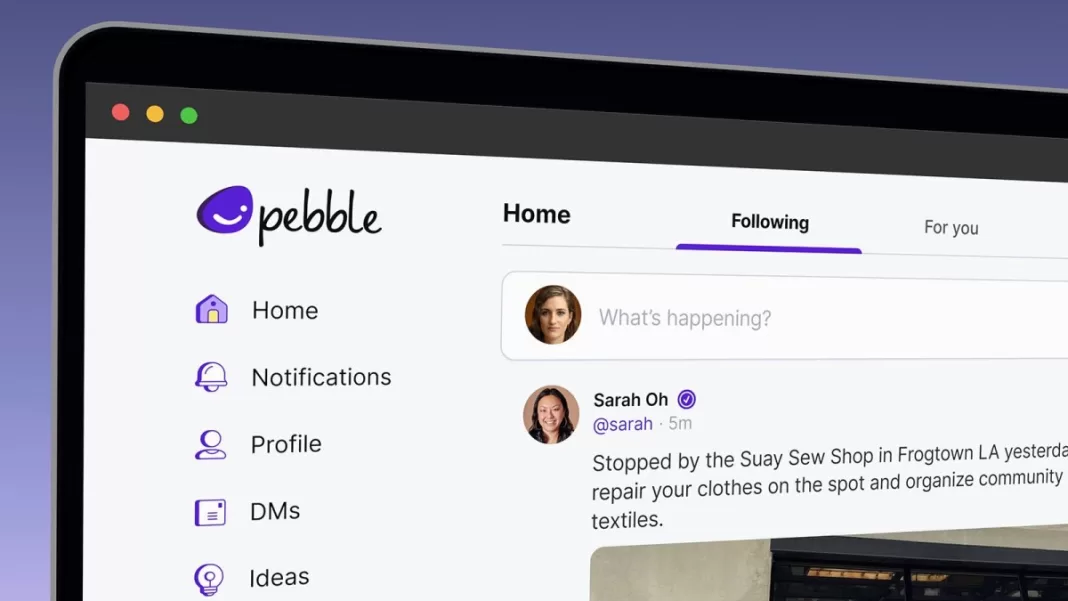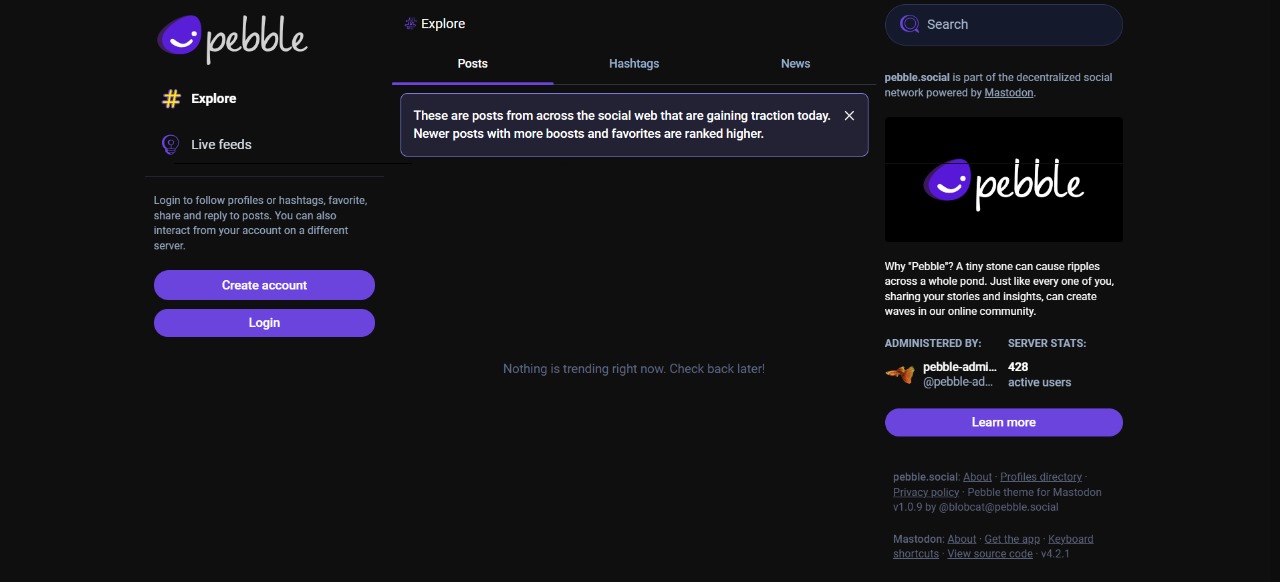Pebble Resurgence, Twitter Challenger to Mastodon Pioneer
Pebble, once a Twitter competitor that faced failure, In a surprising turn of events, has found a new lease on life within the decentralized realm of Mastodon. Last month, Pebble announced the closure of its Twitter alternative, citing intense competition, user retention challenges, and its own struggle to broaden its audience. However, the startup has now reemerged, not on Twitter but as a dedicated Mastodon server named pebble.social.
Initially shrouded in mystery, it was uncertain whether this new Pebble server was a community-led initiative or an official revival. Despite displaying Pebble’s branding and tagline, information about its origin and purpose was lacking. TechCrunch has since confirmed that Pebble’s co-founder and CEO, Gabor Cselle, established the Mastodon instance as a unique social experiment, with the Pebble community actively participating in its moderation.
According to Cselle, the community had requested the founders to create a subreddit and a Mastodon instance as alternatives when Pebble shut down. Unexpectedly, after starting with Mastodon, a significant number of users migrated to the new platform. Notably, a user known as “Blobcat” (@blobcat@pebble.social) contributed to the endeavor by styling the Mastodon instance to mirror Pebble’s original appearance. As a result, Pebble.social has grown to accommodate several hundred active users.
Cselle attributes the success to the power of open source. After restyling the server and implementing blocklists to filter out unwanted content, Cselle delegated moderation responsibilities to a select group while managing the wind-down of the old pebble.is Delaware C-Corp.
Pebble’s journey saw highs and lows, with a peak of 20,000 registered users dwindling to merely 1,000 daily users after rebranding from T2, a temporary name signaling its Twitter clone status. Despite emulating Twitter’s interface and features, Pebble aimed to differentiate itself through a focus on trust and safety, a strategy that failed to resonate with users.
Interestingly, Pebble had initially chosen not to integrate with Mastodon or other decentralized networks due to perceived challenges in implementing trust and safety measures. Cselle had expressed concerns about the difficulty of maintaining safety guidelines on federated networks, fearing it would lead to network fragmentation.
With Pebble.social now contributing to Mastodon’s broader network, the goal is to experiment with social and community dynamics in a federated space. While there are no grand plans, the continuation of a social startup community after the company’s closure is a testament to the value the Pebble community places in this experiment.
Cselle concludes, “I think it’s good to see that the community finds value in this, and that’s that we had a real community on Pebble.”









